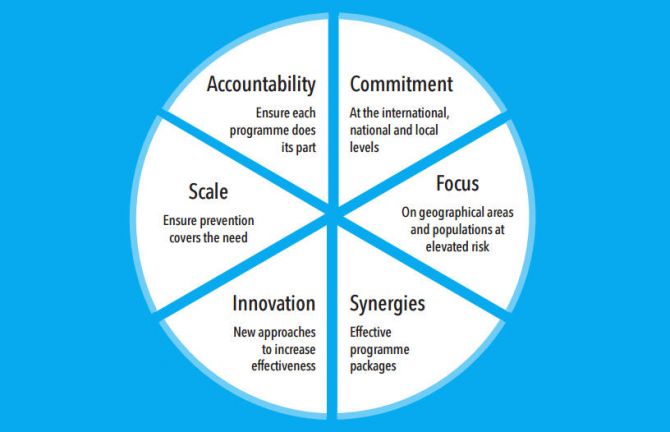

Update
Fast-Tracking combination prevention efforts
27 October 2015
27 October 2015 27 October 2015The expanded availability of antiretroviral medicines and their beneficial effect in suppressing the viral loads of people living with HIV is contributing to a reduction in new HIV infections. However, on its own this is not enough. To end the AIDS epidemic by 2030, the scale-up of targeted combination prevention efforts is urgently required.
In a new publication, Fast-Tracking combination prevention: towards reducing new HIV infections to fewer than 500 000 by 2020, UNAIDS highlights the importance of focused and integrated combination HIV prevention programmes. The report re-defines what combination prevention means and looks at the elements that make combination prevention successful and how effective they can be.
UNAIDS specifies six requirements that countries should follow to maximize the impact of combination prevention programmes. These are: a strong commitment to HIV prevention, including sufficient budget allocation; focusing prevention programmes on where they are needed; strengthening synergies between different combination prevention and treatment programme elements; delivery at scale; incorporating and monitoring scale-up; and establishing clear targets and accountability mechanisms for all involved.
Quotes
“This publication further underlines the importance of Fast-Tracking combination prevention and is a critical contribution to meeting the UNAIDS goal of reducing new HIV infections to fewer than 500 000 by 2020.”



